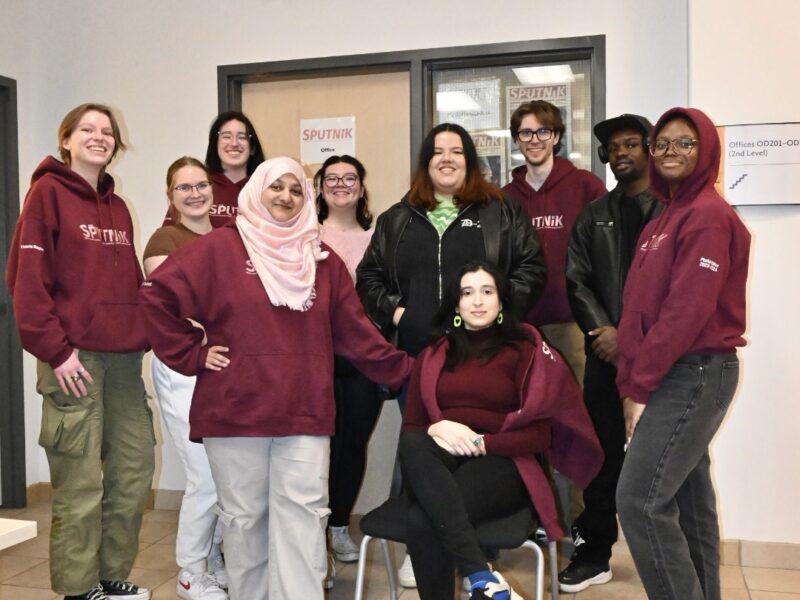Karen Savoy / Sputnik Photography
One Market.
One day I was working, a student from campus came in with their friend. I asked them how school was going, and the anonymous source said they haven’t gone to class. They laugh when professors tell them that readings are important, since they’ll use ChatGPT to finish their midterms and tests. I had a discussion with a professor on the use of artificial intelligence within English programs, telling him I aspire to teach at a university level. He gave me a simple but pungent statement that he honestly cannot see what lies in the next 10 years for the future of education. He doesn’t know what the outcome for teachers will be, therefore he advised me to find a plan B. While I forced out a nod, my stomach sank into itself.
Has social media hindered our appreciation for academics? Does social media affect our critical thinking? Why does the convenience of media overshadow the arts, critical judgements and academics? Has technology, consumerism and a need for dopamine boosts taken over our patience for deeper ideologies or judgements of society? Politics are already trying to eradicate the importance of teachers with technological tools.
But I couldn’t count how many students I’ve met who cannot learn without physical interaction or a hands-on experience. Conversely, a large number of students cannot see past the convenience of artificial intelligence since it saves time and the hassle of completing a task. Do students ask why AI is damaging? As someone who grew up learning through the Catholic French School board, the institutionalized education system already works against the individual since there’s no personalization and is replicated for every student.
It is easy to see why the exhaustion of traditional education pushes people to find shortcuts. By using AI to “beat the system”, the need for convenience fails our humane obligation to learn, grow, adapt and make decisions. Technology has made things quicker, simpler and more efficient; the newer generation has lost the intent for practice. When a teacher mentions AI, the room gets stiff.
There’s this barrier between the older and newer generation, as if we’ve found the greatest resource in history to further our education. Just because generations get more modernized does not mean our practices or morals are better. It’s not always about the essay you’re writing or the readings you’re trying to get through. Sometimes it’s about the process of organizing your thoughts, centering profound analytical attention to something and dissecting its patterns to see your weaknesses and strengths in your study. To be present in your journey of learning instead of taking it for granted.
This is becoming a wider systemic issue. AI is climbing onto extinction levels when it comes to the significance of literature, the validity of degrees and future jobs. Technology can help us be activists and critical thinkers since it’s a great way to reach large groups.
However, students who use AI aren’t using it responsibly or constructively. Anyone who considers themselves an academic or scholar knows AI is a low blow of educational resources and a lazy research tool. Students can’t demand a better education system and criticize its ethics when students are willingly contributing to its downfall. You’re cheating yourself out of the benefit of education in which those applied skills/lessons can help you for the rest of your life. While equally standing on a weak sense of ethics/morality.
We forget the significance of presence and process because we prioritize convenience over a learned experience. At some point, we must make sacrifices for our needs, instead of wants, and better self which contributes to the quality of global education.
This article was originally published in print Volume 23, Issue 2 on Thursday, Oct. 5.




